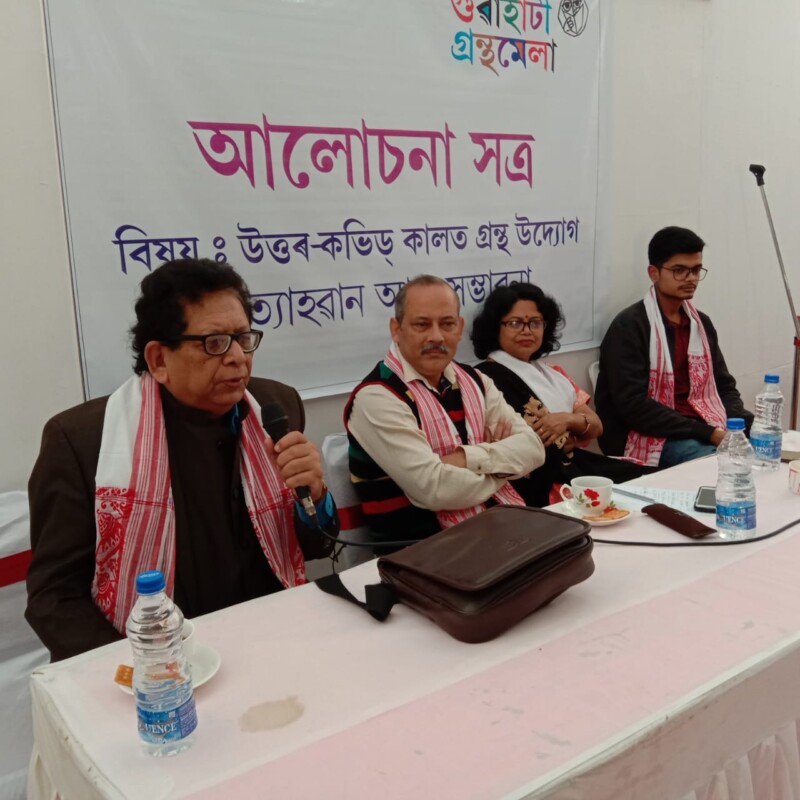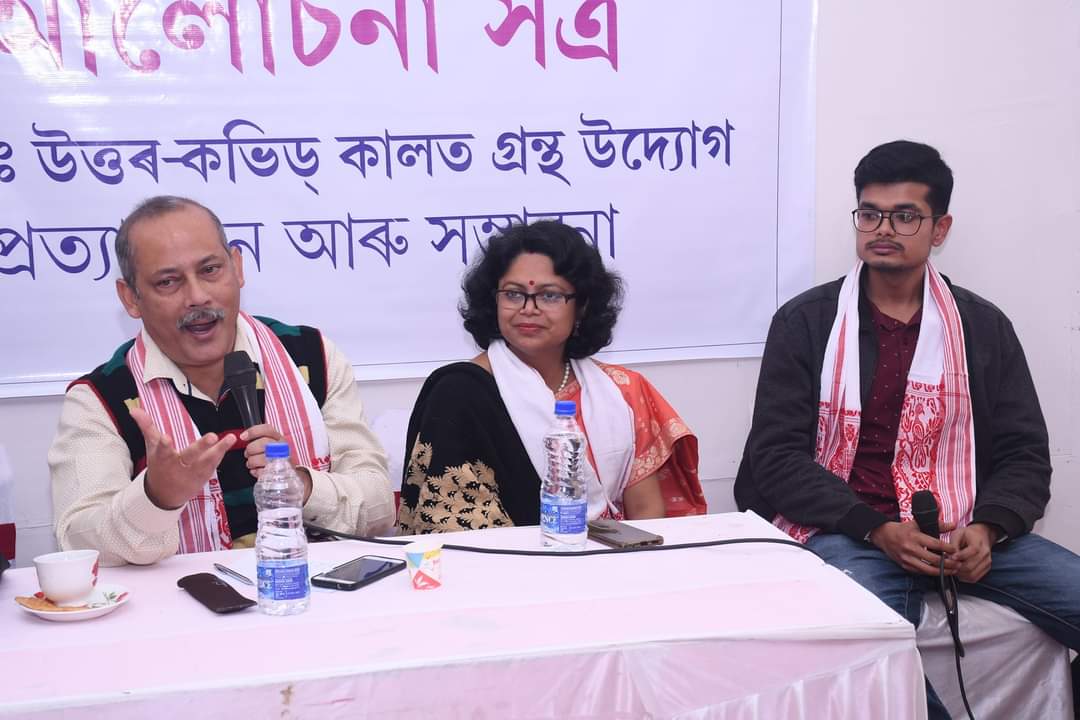The prestigious 33rd Guwahati Book Fair, was an event for book publishers, writers, journalists, and conscious readers earlier this month.
Participants assembled to introspect over the challenges faced by the book publication industry during the government response to the Covid-19 pandemic, when India decided to invoke a national lockdown. Event participants also talked about new possibilities in the post-corona era.
During a special session, there was an intriguing discussion, with participants unanimous that the pandemic response had severely affected the publication industry including physical newspapers. At the same time, the lockdowns helped to increase the number of committed readers, especially among the younger generation. Some participants suggested that the process of publication and marketing of Assamese books benefited by new approaches to the technology-driven profession for the interest of valued readers.
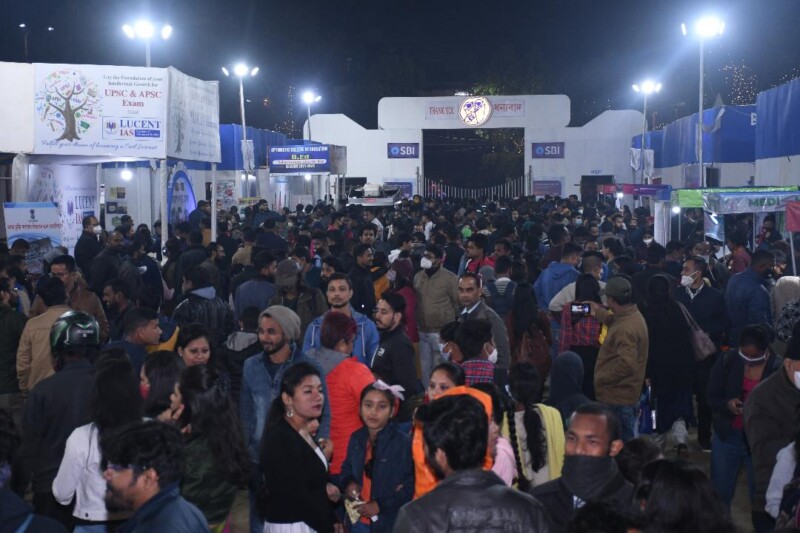
Guwahati Book Fair visitors
Assam-based senior publisher Nabin Baruah opened the session, describing the hardship faced by publication houses as the corona-pandemic began in early March. Baruah suggested that the disaster may result in people redefining their life in the unusual isolation. He thought that many people could regain their habit of reading and others may join the group of committed readers irrespective of the paper-printed books or digital outlets.
The session was addressed by several young publishers and thought leaders, including Pritima Kaushik Barua, Manish Hazarika, Dhiraj Lahkar, Amrit Upadhaya, Farhan Javed, Buljit Buragohain, and award-winning Assamese author Bipul Deuri. They observed that various modern technological tools for publication, promotion and marketing would finally bring a better deal for quality publishers around the world.
Participating in the discussion, literary magazine editor Mihir Deuri, senior journalist Dixit Sarma, prolific writers Geetali Borah, Nabajyoti Pathak with Rupam Dutta, Jintu Thakuria, Nripen Dutta and others expressed concern over the shrinkage of valued readers in various regional languages across India. The group felt confident that it may be time to promote Assamese as an internet-savvy language, expanding reach to millions of readers living around the world.
As a moderator of the session, I also drew the attention of everyone to the severe crisis facing the print media as many people still do not receive newspapers at their residences.
“We are happy to witness the massive gathering of visitors at the book fair venue.” – Pramod Kalita
Nava Thakuria in discussion
Ridiculous Rumours
There was a false rumour that newspapers can carry the corona-virus. This discouraged senior citizens from reading their favourite papers. Because most of the news content now remains available in digital platforms on the same day the paper is printed, people found they did not need the printed version.
“Editors may have to change the approach to news for the survival of newspapers.” – Nava Thakuria.
Guwahati Granthamela
Every day of the event at Guwahati Granthamela (30 December 2020 to 10 January 2021) attracted thousands of book lovers. The event, with more than 125 stalls was free, thanks to the organizer, Asom Prakasan Parisad.
The State-run publication board had previously postponed the book fair twice. First due to political unrest in 2019 and then due to the pandemic in early 2020.
Many publishers were very pleased to see the book fair finally opened, especially the literary discussions, book release functions and spectacular cultural evenings.
Formal Opening
The festival event was formally opened at Assam Engineering Institute playground in Chandmari by Assam chief minister Sarbananda Sonowal’s media adviser Hrishikesh Goswami. Also attending were noted intellectual Tathagata Roy, renowned litterateur Yeshe Dorjee Thongshi and a number of other dignitaries.
Representing CM Sonowal at the function, Goswami conveyed the Chief Minister’s goodwill to everyone commenting that books are the oasis in deserts which nurture the intellectual and creative capacities of human beings. He also conferred Prakasan Parisad’s lifetime achievement award for 2019 on eminent Assamese scholar Dr Thaneswar Sarma in presence of all dignitaries. The award included a citation, corsets, and a two lakh rupees check.
Former Governor of Tripura, Meghalaya & Arunachal Pradesh, Roy in his speech called Assamese “a sweet language” and expressed hope that the bonhomie between Assamese and Bengali people would continue in the future. A resident of West Bengal but familiar with the Assamese society, the outspoken author observed that the National Education Policy 2020 should immensely help in highlighting the regional languages and their literature.
Padmashri Thongshi, a resident of neighbouring Arunachal Pradesh, described various challenges that surfaced due to the corona-pandemic. The Sahitya Academy awardee derived a positive note out of the pandemic with the increase of quality readers across the world. Thongshi expressed happiness that a collection of literary pieces including novels, short stories, folk tales, etc written in both Assamese and English by another Arunachali litterateur Lumber Dai was released at the function.
A stall dedicated to Bangladesh literature and another showcasing the Tibetan culture added colour to the book fair.
The freedom movement led by exiles Tibetans against the Communist regime in Beijing also came alive in a stall operated by Tibetan support group leader RK Khrimey and managed by Buddha enthusiast Soumyadeep Datta. Highlights of the stall included the message of Tibet being India’s real neighbour (not China) and probable devastations in the Brahmaputra with Beijing’s environmental intervention in the mineral-rich land.
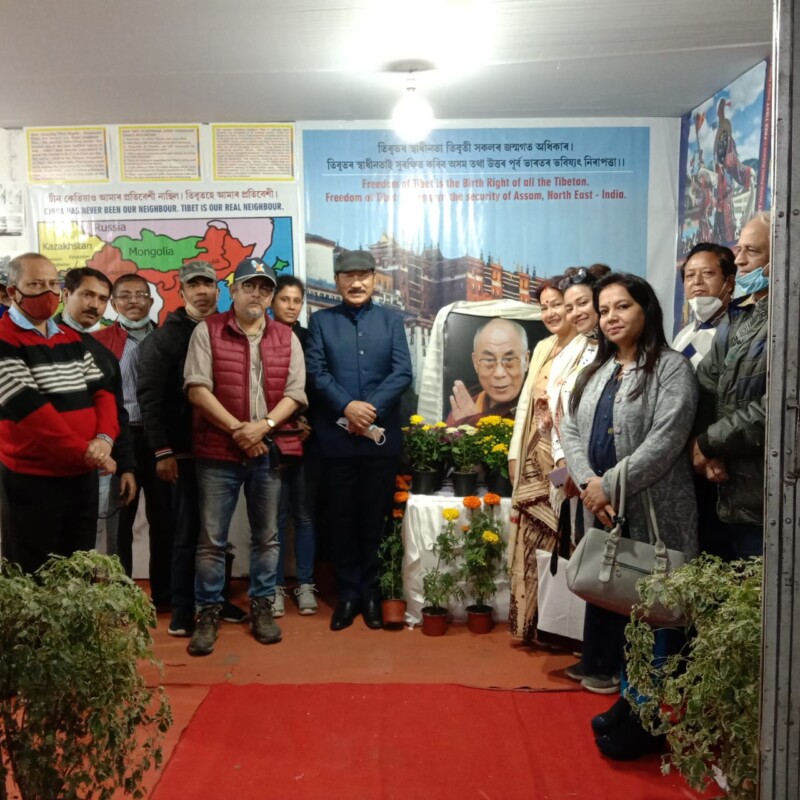
Tibet stall at bookfair
Young Writers
Creative pieces by young writers received excellent responses from Granthamela visitors. A number of reprinted Assamese books by Prakasan Parisad also enjoyed visible demand. Two important translation-works related to Prime Minister Narendra Modi were sold in large numbers. The Assamese version of Modi’s popular letters to his mother titled “Aailoi Chithi” along with the translations of the PM’s weekly radio program titled “Mon Ki Baat” as “Mor Priya Deshbasi” drew instant attention from many book lovers.
“We are happy to witness the massive gathering of visitors at the book fair venue. The participating stalls have sold books for crores of rupees,” said Pramod Kalita, secretary to the publication board, which launched the book fair movement in the early 1980s initially in collaboration with National Book Trust of India, adding that the appreciation of book lovers encouraged the publication board to reprint many rare pieces as well as new creations involving established as well as promising authors.
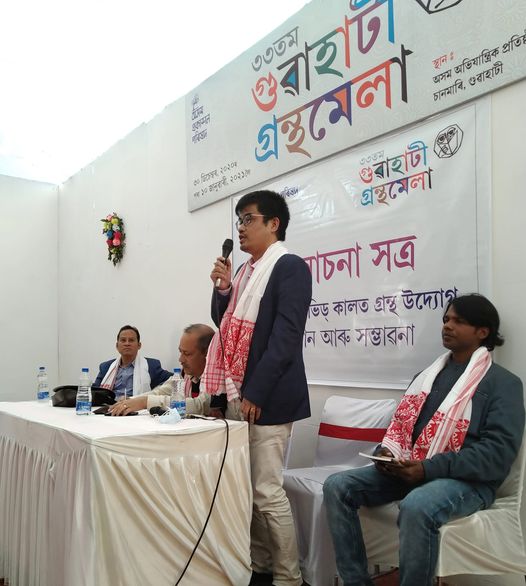
bookfair speaker
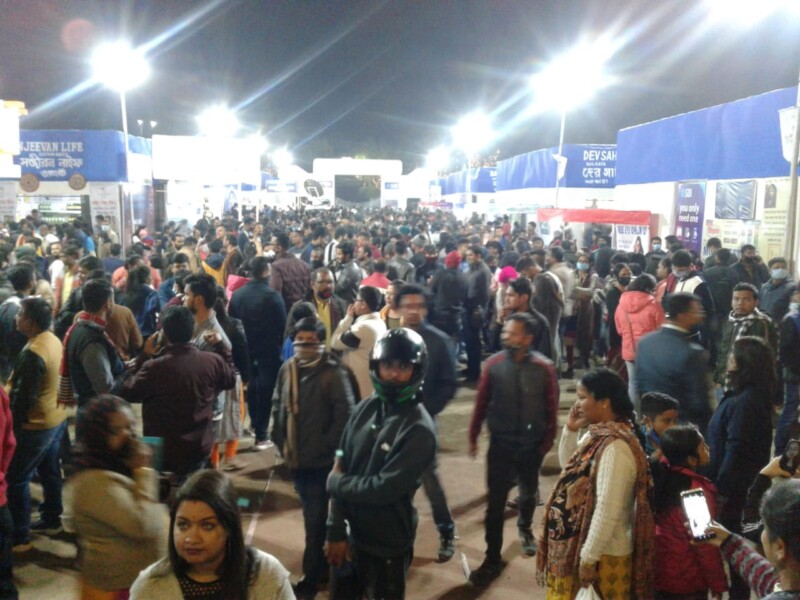
night event

